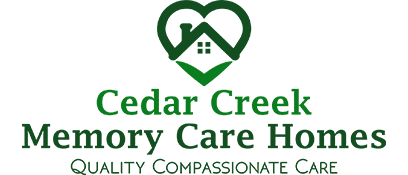As the general population continues to age, more and more older adults are being diagnosed with Alzheimer’s disease. While most people with Alzheimer’s disease develop it after the age of 65, symptoms can start to appear in people as young as 30. Read on to learn and find out what are the early signs of Alzheimer’s, its risk factors and what you need to do.
Risk Factors of Alzheimer’s Disease
Although the cause of Alzheimer’s disease is unknown, there are certain factors you can look out for. Research suggests Alzheimer’s may be linked to the following:
- Age: If you’re above the age of 65, you have a higher risk of developing Alzheimer’s disease.
- Gender: According to the Alzheimer’s Association, nearly two-thirds of Americans with the disease are women.
- Genetics: Having family members with Alzheimer’s increases your chances of getting the disease.
- Head injury: People who’ve sustained head injuries are more likely to develop some form of dementia.
- Health: High blood pressure or cholesterol can be a risk factor for Alzheimer’s.
Even if you or your loved ones don’t have any risk factors, it’s important to be aware of potential symptoms. Knowing and recognizing the signs is key to achieving an early diagnosis.
What are the Early Signs of Alzheimer’s Disease?
Currently, there’s no curative treatment available for Alzheimer’s. However, you can reduce the severity of symptoms and improve your quality of life by noticing signs in the early stages. Here are some key signs to look out for.
1. Memory Loss
While forgetting where you placed your keys now and then isn’t a big deal, repeated memory loss can be a sign of Alzheimer’s. Someone with mild memory loss may do the following:
- Repeat questions
- Misplace items
- Fail to complete tasks
- Occasionally forget appointments or obligations
Most people with the disease start off with mild cognitive impairment that worsens over time. For example, memory loss may progress from missing a doctor’s appointment to forgetting names, memories or locations.
2. Wandering
A common symptom of Alzheimer’s disease is wandering. In some cases, the patient might accidentally go the wrong way; in others, they may set off in the right direction, then get lost during the process. Over time, wandering can get dangerous (especially if the patient ends up in an unknown location).
3. Mood Changes
When someone has Alzheimer’s disease, their brain cells start to die. Not only does this cause cognitive decline, but it can also lead to the following mood changes:
- Increased anger or frustration
- Depression and lack of interest in activities
- Imagining things that aren’t happening
In severe cases, an Alzheimer’s patient may develop serious anxiety or aggression.
4. Poor Judgment
Believe it or not, making bad decisions can be a sign that someone is developing Alzheimer’s. People with the disease may not realize the consequences of their actions, leading to bad choices they wouldn’t normally make. For instance, they might make an unnecessary purchase or dress inappropriately for a function.
5. Money Management Issues
Many people with early-onset Alzheimer’s struggle with financial obligations. Tasks that were previously easy, such as balancing a checkbook, may suddenly be difficult. Here are a few indications someone is struggling with money management:
- Unpaid bills
- Strange credit card purchases
- Missing bank account funds
It’s common for people to try to hide their money struggles. Unfortunately, this can lead to serious financial issues (especially if the person is responsible for managing the funds of family members).
6. Slow Speeds
When Alzheimer’s develops, completing regular tasks often becomes difficult or confusing. As a consequence, people with the disease may move at slower speeds. For example, if someone generally takes around five minutes to get dressed in the morning — as Alzheimer’s progresses, they might start needing 10 minutes, then 15 or 20.
7. No Drive
A major symptom of Alzheimer’s is losing your drive or passion. A previously enthusiastic, goal-oriented person may lose their motivations and interests as the disease worsens. To identify this sign, look out for the following:
- No longer engaging in hobbies
- Giving up on goals
- Loss of enthusiasm
- Lack of spontaneity
- Not meeting previously high standards
Ultimately, Alzheimer’s patients may no longer want to accomplish their goals or even participate in activities they used to enjoy.
8. Changes in Appearance
Personality changes aren’t the only differences that occur in Alzheimer’s patients — it’s common for people to start neglecting their hygiene and have less interest in their appearance in general. This may include anything from wearing stained clothes and underdressing to not doing laundry or showering.
What Should You Do If You Recognize Alzheimer’s Symptoms?
If you recognize any potential signs of Alzheimer’s, don’t ignore them. When left unaddressed, the condition will likely worse and lead to more severe symptoms, such as:
- Skin infections
- Communication problems
- Loss of bowel and bladder control
- Excessive sleeping
Treatments like medication, memory techniques and physical exercises are more effective when the disease is diagnosed at an early stage. In addition, an early diagnosis gives loved ones more time to adjust and find support. You can also incorporate memory care activities that will help seniors suffering from Alzheimer’s.
While you can catch Alzheimer’s early, there’s no way to prevent symptoms altogether. As Alzheimer’s disease progresses, it can become increasingly difficult to cater to the patient’s needs. That’s why many families rely on the help of memory care homes, such as Cedar Creek Memory Care.
Contact Us Today!
You want the best for your loved ones, and so do we. At Cedar Creek Memory Care, we provide a safe, supportive environment for people with neurodegenerative disorders. Our experienced caregivers can assist with memory problems, physical health issues and any other symptoms of Alzheimer’s disease. We offer reminiscence therapy, exercise, activities and socialization opportunities. Learn more about how we improve the quality of life for memory care residents by contacting us online or calling us at (301) 384-4017.







